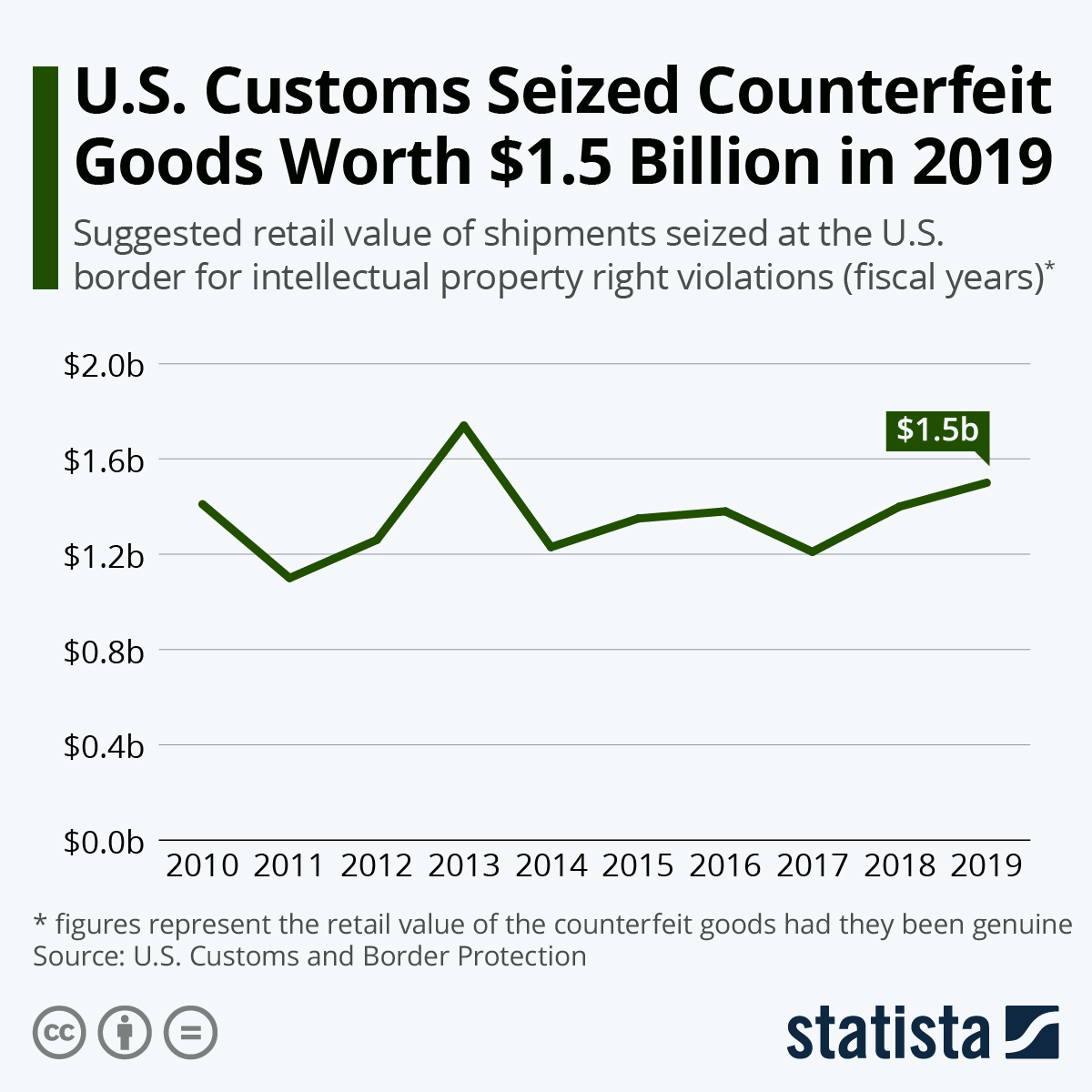President Donald Trump recently signed an executive order aimed at preventing e-commerce companies from selling counterfeit and pirated goods from abroad in the United States. The order titled “Ensuring Safe and Lawful E-Commerce for United States Consumers, Businesses, Government Supply Chains, and Intellectual Property Rights Holders” warns that e-commerce platforms are being “exploited by traffickers to introduce contraband into the United States” and urges all companies involved, including retailers as well as express carriers and mail companies, to take appropriate countermeasures.
“The trafficking of counterfeit and pirated goods is a scourge that causes significant harm to our workers, consumers, intellectual property owners, and economy,” U.S. Trade Representative Robert Lighthizer said in a statement, adding that the phase one trade deal with China “includes strong intellectual property protections and effective action against pirated and counterfeit goods”.
In fiscal year 2019, U.S. Customs and Border Protection seized 27,599 shipments of goods that violated intellectual property rights. The retail value of the counterfeit goods amounted to $1.5 billion, meaning that the seized goods would retail for that much if they were legitimately sold. As our chart shows, that’s the highest value since 2013, even though the number of seized shipments actually declined significantly compared to previous years.















